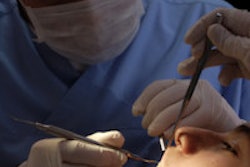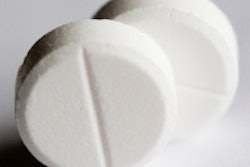Patients with pharyngeal cancer who eat regularly and consistently perform swallowing exercises throughout radiotherapy have much better long-term eating outcomes, according to a new study in Otolaryngology -- Head and Neck Surgery (September 19, 2013).
The findings support those of a similar study published last month in the same journal.
For the current study, researchers from MD Anderson Cancer Center and NorthShore University HealthSystem set out to evaluate the independent effects of maintaining oral intake throughout radiotherapy and adherence to preventive swallowing exercise.
The study included 497 patients treated with definitive radiotherapy (RT) or chemoradiotherapy (CRT) for pharyngeal cancer (458 oropharynx, 39 hypopharynx) between 2002 and 2008.
At the conclusion of RT or CRT, 26% (131 patients) had no oral intake and 74% maintained oral intake (167 partial, 199 full), the researchers reported. In addition, 58% (286 patients) reported adherence to swallowing exercises. Maintenance of oral intake during RT or CRT and swallowing exercise adherence were independently associated with better long-term diet after RT or CRT (p = 0.045 and p < 0.001, respectively) and shorter duration of gastrostomy dependence (p < 0.001 and p = 0.007, respectively) in models adjusted for tumor and treatment burden.
Patients who either eat or exercise fare better than those who do neither, while patients who both eat and exercise have the highest rate of return to a regular diet and the shortest duration of gastrostomy dependence, the study authors concluded.



















